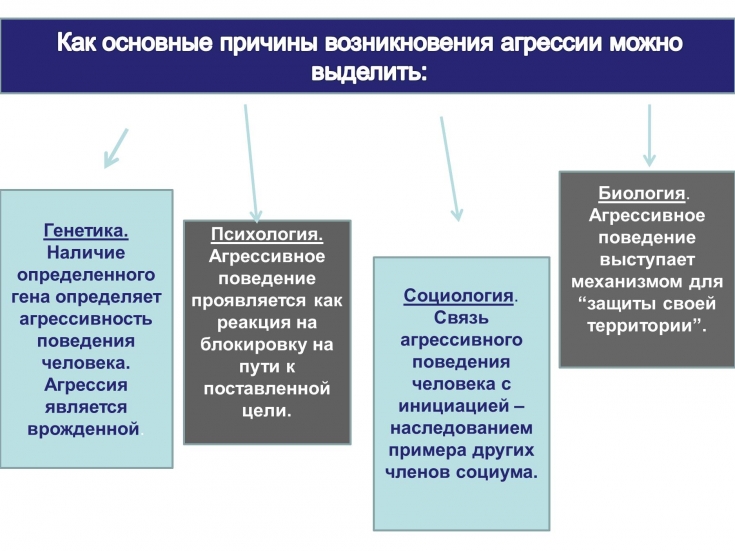Surely, no one will argue that communicating with people is a difficult task. Without realizing it, we feel how some people subtly manipulate us, while, from the outside, communication does not go beyond the bounds of decency.
A passive-aggressive interlocutor is a person who monotonously "drinks" Your strength feeds on your energy. In turn, it is very difficult to understand this, because such people are seemingly polite, do not violate personal boundaries, but this is only at first glance. Upon closer examination, it becomes clear that a person is simply a "vampirite".
Every person needs to learn to detect signs of passive aggression, and estet-portal.com will help you with this .
1. Features of passive aggression: how to identify
2. Sabotage – this is the essence of the passive aggressor
3. Anger – hidden emotion of the passive aggressor
4. Provocation – favorite pastime of the passive aggressor
5. Denunciation and passive aggressor: words synonyms
6. Passive aggression – exact antonym of responsibility
7. How to resist the passive aggressor
8. What you need to know to protect yourself
Features of passive aggression: how to identify
Passive Aggressor – this is a person whose main feature of behavior is that under any circumstances he tries to extinguish anger. Unable and unwilling to express their negative emotions, such a person accumulates resentment and anger. Over time, there are so many of them that the aggressor has to splash out his emotions on other people, while carefully disguising the true motives.
You will never hear explicit criticism or dissatisfaction from a passive aggressor, however, relations with him, sooner or later, will turn into a real nightmare. How to recognize this type of personality, and learn how to resist it, you can learn from the information provided in this article.
Sabotage – this is the essence of the passive aggressor
Standard case - management gives a task to a subordinate, but he is in no hurry to complete it, due to the fact that this work is not to his liking. A person will pull to the last, wriggle, avoid solving the task, in the hope that everything will “dissolve” by itself, that the task will be transferred to another employee.
To do this, the passive aggressor pretends that he does not have time, does not cope, in general, that he does not succeed, although in fact this is not the case – he just doesn't want to do any work by force. In any case, the workflow will be sabotaged and the aggressor will get his way.
Anger – hidden emotion of the passive aggressor
Often, passive aggression strikes people from families where hostile atmosphere constantly reigns. Eternally swearing parents, who periodically rush at each other with their fists, cause a protest in the child, which in adulthood translates into a desire to avoid open conflicts in every possible way.
But, as we understand, aggression does not go away, it accumulates and grows, periodically transforming and pouring out on others in the form of constant discontent and critical assessments. Carefully hiding his real feelings, a passive aggressor in any situation will assure you that everything is fine, that everything suits him. But, it is enough just to feel the intonation of the voice to understand that all this is a bluff and the person is dissatisfied.
The people in this article avoid direct confrontation and will never say directly what causes their displeasure. At the same time, they will try to impose on you the idea that you are inadequate, cruel and soulless. It might sound something like this: “Of course, do as you know, why do you need to think about how I feel about it. Who cares about my condition?
Provocation – favorite pastime of the passive aggressor
Passive Aggression – this is a state in which the aggressor is always trying to keep "face". He will never show his obvious anger, he will restrain his feelings and emotions to the end.
Mute is their favorite game. By shifting the responsibility for the conflict onto the shoulders of another person, the aggressor always understands what he is "doing". His goal is to enrage you, thereby making himself white and fluffy. As a result, you will hear the banal phrases "I told you that you don't care" - this is pure provocation, which should not be succumbed to. You will yell furiously, and the passive aggressor will nod your head and say that he knew from the beginning what kind of person you are.
Denunciation and passive aggressor: synonymous words
The passive aggressor is filled with a whole heap of unexpressed
and the impossible. If you manage to recognize the aggressor among your colleagues in time, stay away from him, otherwise he may not only choose you as a victim, his covert actions can seriously harm even your career.
In any life circumstances, a passive aggressor avoids responsibility, responsibility for his choice, for his actions. He will blame his parents for not giving him anything, his loved one for depriving him of opportunities. You and only you will be to blame for all his everyday mistakes and work failures.
For everyone, the passive aggressor saves his own version of reality, according to which he is a good and unhappy person, and all the rest – tyrants.
Infantile behavior gets worse with age, a person begins to believe in his decency and "exclusivity". Being next to a passive aggressor, and proving the opposite to him, you are simply wasting time, because he does not intend to give up his personal assessment, under any circumstances. How to resist a passive aggressor
Psychologists say that most people who are prone to passive aggression are not even aware of their own “illness”. The trauma received in childhood leads to the fact that the child tries with all his might to protect himself in adulthood, but this does not mean that he does not need to be resisted.
In order to
stop a passive aggressor, the following steps must be taken: • Fight tactics. If a person regularly ignores your request not to be late, warn that next time you will leave if he is more than 10 minutes late, while speaking respectfully, without insults.
• Dialog. Since the passive aggressor himself does not know what he is doing, it is worth talking to him in his own language – peacefully but convincingly. Explain to the person that you are tormented and strained by his avoiding the conflict and hushing up the problem.
• Logical chain. If the passive aggressor is your spouse, then over time you will learn to notice when a person is not in a good mood. You should not boycott in response, on the contrary, try to understand why your loved one does this, maybe you
at some point went too far. If it so happened in your life that you cannot avoid communicating with a passive-aggressive person, then you should understand one golden rule – You are not to blame for anything. No need to look for the reason in yourself, for such a person, his demeanor – the norm, and he will always find the guilty, not you, but someone else.
 What you need to know to stay safe
What you need to know to stay safe
Passive Aggression – this is what needs to be resisted. Clearly build your boundaries and go to the end if you are sure that you are right. The passive aggressor will stop at nothing, and will go to the end to express his secret desires. If you feel that something is wrong, accept it and correct it, but nothing more – don't take responsibility for something you didn't do.
You don't need to retaliate, it will only provoke a greater intensity of emotions, and only on your part. The passive aggressor will continue to pretend to be an unfortunate "sheep", complaining to everyone about how he is not understood and offended.
In especially severe cases, when a passive aggressor puts pressure on you, you should not endure it, seek help from a psychologist. A specialist will help you see the situation from the outside and get out of it with the slightest loss to your mental health.
In order not to lose faith in your own strength, remember that everything that the passive aggressor says – It's not about you, it's just that it's convenient and necessary for him. Take care of yourself and your personal space by preventing toxic people from entering your territory. Remember that in this situation, your mental state – it is a healthy assessment of what is happening and self-control.
Read more interesting things about emotional and psychological health at estet-portal.com.
Read also:
Emotional maturity: 10 main signs
You may be interested in: How to understand what the "chips" of your appearance are.







Add a comment